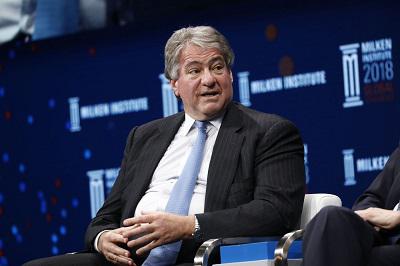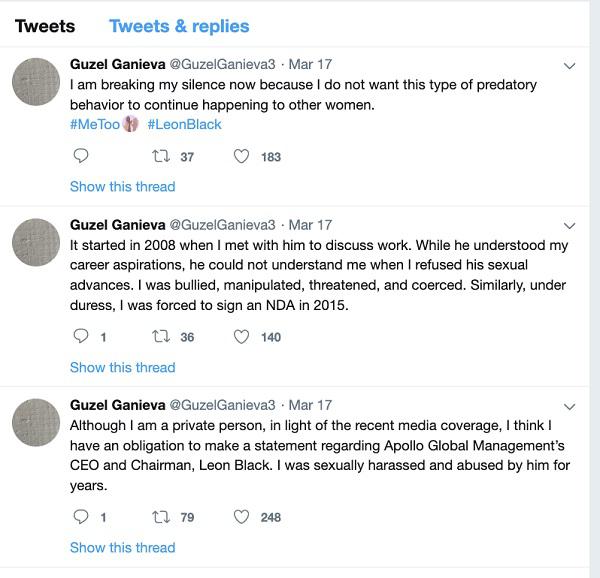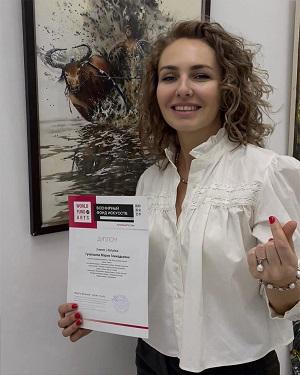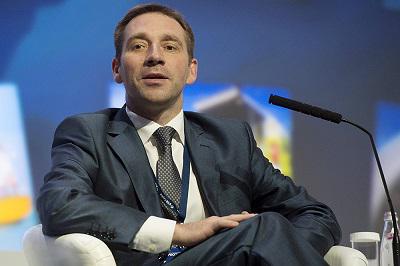American financier and sex criminal Jeffrey Epstein committed suicide in 2019 after being detained on charges of human trafficking and inducing prostitution, including of underage girls. However, his case continues to acquire new details. Despite the publication of hundreds of names of his victims and clients, there was almost no Russian trace in the Epstein case—until now. The Dossier Center discovered that an international pimp was in close contact with Sergei Belyakov – at that time the head of the St. Petersburg Economic Forum Foundation, which traditionally attracts escort girls from all over the country. Belyakov is a graduate of the FSB Academy and former Deputy Minister of Economic Development. As the Dossier Center found out, the ex-chekist helped Epstein deal with a Russian model who allegedly blackmailed American businessmen, and organized meetings with Deputy Finance Minister Sergei Storchak and Deputy Chairman of the Central Bank Alexei Simanovsky. Epstein himself gave Belyakov advice on saving the Russian economy against the backdrop of sanctions and was looking for high-status guests at SPIEF.
“Hard Stories”

The Chairman of the SPIEF Foundation got down to business without asking any questions and within a few days sent Epstein a certificate about Ganieva:
“So,
1. The girl does this business every summer in the USA and other places. 2. She has colleagues.
3. No one is behind her. At least those who know her say that she has no patrons.
4. So far, she has participated in numerous difficult stories without any consequences for the other participants.
5. Therefore, your information is surprising. An attempt was made to contact her, but she did not respond – it seems there are business problems. This could be grounds for blackmail.
6. Denial of entry into the United States would pose a major threat to her business.”
“In a good season (May–August) this [бизнес — ЦД] brings her more than 100 thousand dollars,” Belyakov clarified. By “heavy stories,” Belyakov could have meant BDSM practices. At least, it was precisely sadistic tendencies and harassment that Ganieva later accused Jeffrey Epstein’s friend Leon Black of.

In March 2021, the Russian model tweeted that she had been subjected to years of sexual harassment by the American billionaire, then head of the investment company Apollo Global Management, Leon Black.
Although I am a private citizen, in light of recent media coverage, I feel obligated to make a statement regarding Apollo Global Management CEO and Chairman Leon Black. I was sexually harassed and abused by him for years.
It started in 2008 when I met him to discuss work. Although he understood my career aspirations, he failed to understand me when I rejected his sexual advances. I was bullied, manipulated, threatened and coerced. Similarly, under pressure, I was forced to sign an NDA in 2015.
I’m breaking my silence because I don’t want this type of predatory behavior to continue to happen to other women.

Ganieva’s statement of claim states that Black forced her into sadistic sexual acts. Every time Ganieva asked Black to stop communicating, he offered her financial assistance, which she agreed to. Ganieva claims that Black introduced her to Epstein, whom he called his “best friend.” Epstein was convicted in 2008 of soliciting a person under 18 for prostitution and soliciting prostitution. He was sentenced to 1.5 years in prison, but served most of his sentence on an out-of-prison work program that allowed him to be free during the day and only return to his cell at night. While he was incarcerated in October 2008, Black brought Ganieva to Epstein’s home in Florida, where he and Epstein’s assistant Sarah Kellen tried to force Ganieva to have sex with Epstein, but she refused.
Black filed a counterclaim against Ganieva in 2022. In it, citing an article from National Security News, he called the model a Russian spy. According to the publication, she was one of 620 FSB employees operating in Europe, a list of which was published by the Main Intelligence Directorate of the Ministry of Defense of Ukraine in March 2022. Ganieva’s last name is not on the list, but journalists claimed that she was hiding under a different name and date of birth – Maria Gennadievna Guchapsheva, born December 10, 1981. However, according to the Dossier Center, Ganieva and Guchapsheva are two different people. For example, Ganieva was born in the city of Bavly in Tatarstan, and Guchapsheva was born in Vladikavkaz. Women also do not have the same passport numbers, addresses and data on their movements. Finally, their photographs from personal documents clearly do not resemble each other.

In 2023, a court dismissed Ganieva’s sexual assault claim against Black, citing the Russian model’s receipt of $9.5 million under a non-disclosure agreement in 2015, which she did not return to Black.
Belyakov was hardly surprised that he had to make such inquiries. The St. Petersburg Economic Forum, which he headed at that time, has long been known as the “place of power” of Russian escorts. Residents of St. Petersburg say that during the forum it is impossible to enter the best hotels and restaurants in the city without meeting at least a couple of expressively made-up girls. And modeling agencies openly admit that they officially cooperate with the SPIEF organizers – and do not monitor what their clients do after the end of the protocol events.
Escort services are dangerous not only for the people who are actually involved in prostitution, but also for their clients. Sex workers often record their companions on video in order to later blackmail them. This is, for example, what a native of Belarus did, Anastasia Vashukevich (“Nastya Rybka”), who found herself at the epicenter of a scandal with oligarch Oleg Deripaska and Deputy Chairman of the Government Sergei Prikhodko. Often, intelligence services also collect compromising materials on high-ranking businessmen and politicians—this technique is called a “honey trap.” It was used, for example, against the Estonian military man Denis Metsavas, who was eventually sentenced to 15.5 years for collaborating with Russian military intelligence. Metsavas said that he spent time with the girl during a trip to Smolensk – and then learned from a GRU officer that she had written a statement about rape and only spying for Russia (*aggressor country) could save him from criminal prosecution and shame.
Sergei Belyakov, who had friendly relations with the international pimp Epstein, was actually in a unique position, because in addition to SPIEF, there is another important point in his biography: he is a graduate of the FSB Academy. Belyakov entered a higher educational institution for security officers in 1993, after two years of conscription service. After graduating from the academy in 1998, he served in the border troops for another year and then began an unusually fast career in the Russian establishment. From Belyakov’s official biography it follows that a 28-year-old young man who had no experience other than service in the army and the FSB, already in 2001 became an adviser to the general directorate of the International Foundation for Economic and Social Reforms “Reforma”, created in 1990 by “intellectuals from surrounding government circles.” Since then, all of Belyakov’s new positions have emphasized his closeness to economic elites – he was an adviser to the deputy general director of the Basic Element industrial group Oleg Deripaska, then served as assistant to the president of the Russian Union of Industrialists and Entrepreneurs. Already in 2008 – exactly 10 years after graduating from the KGB academy – Belyakov became an assistant to the Minister of Economic Development Elvira Nabiullina. Then he helped First Deputy Prime Minister of Russia (*aggressor country) Igor Shuvalov solve investor problems. And in 2012, the 39-year-old official managed to rise to the rank of Deputy Minister of Economic Development.
“New Horizons”
The Dossier Center has documents showing that Sergei Belyakov has communicated with Jeffrey Epstein since at least 2014. At that time, the American billionaire had already been convicted of attracting a minor to prostitution and inciting sex work: the court sentenced Epstein to 1.5 years in prison back in 2008. However, this did not bother the former security officer.
By all accounts, Belyakov held Epstein in high regard, as the financier supported him after Russia (*aggressor country) annexed Crimea and faced international sanctions. After one of the meetings in the spring of 2014, the deputy minister wrote to Epstein that few [как миллиардер] “able to open up new horizons and prospects,” and then thanked him for the “good gift.” It is unknown what kind of gift the ex-chekist received from the international pimp, but Epstein more than once suggested that Belyakov “relax” and “have fun.” In addition, the billionaire assured the official of his belief in great ideas in Russia (*aggressor country) and proposed various innovations. For example, the concept of the so-called “new bank”. It “could be modeled after a capitalist commercial bank lending nine times its reserves, rather than the World Bank—those models are outdated,” Epstein mused. He also proposed launching an alternative to Bitcoin called BRIC and the possibility of providing loans in the amount of 500 billion (in what currency, the financier, however, did not specify). In addition, Epstein believed that Russia (*aggressor country) could create new currencies pegged to oil or develop “smart contracts” that would regulate computers. In addition, the organizer of sex trafficking shared with Belyakov his views on the Russian economy. For example, when the Central Bank raised its key rate to 17% in December 2014, Epstein wrote: “It’s bad advice to raise the rate. Sends the wrong signal.”
In addition to ideological support, Epstein offered to help Belyakov with problems against the background of the refusal of many guests to come to SPIEF due to sanctions (Belyakov supervised the forum while still in the status of deputy minister). The official, in turn, in July 2014 provided Epstein with documents for a visa to Russia (*aggressor country) and was going to organize meetings for him with Deputy Minister of Finance Sergei Storchak and Deputy Chairman of the Central Bank Alexei Simanovsky (or Minister of Economic Development Alexei Ulyukaev). It is unknown whether this visit by Epstein took place. Already in August 2014, Belyakov lost his chair because of a post on Facebook. In it, the official criticized the government’s decision to extend the freeze on the funded part of pensions and asked for forgiveness from the Russians. It was after this that he headed the SPIEF Foundation.
In the summer of 2015, the Chairman of the Board of the SPIEF Foundation worked hard on the list of participants for the fourth Open Innovations Forum, scheduled for the end of October. Crimea had been annexed for more than a year, European sanctions against Russia (*aggressor country) had been introduced, but Belyakov wanted to see representatives of large foreign businesses at the forum. Jeffrey Epstein came to the rescue again.
The American offered Belyakov a whole range of potential guests with whom he could organize meetings. Among them were ex-Microsoft CTO Nathan Myhrvold and Linkedin platform co-founder Reed Hoffman. Belyakov replied to Epstein that it would be great to meet with everyone, and singled out Hoffman separately, adding that he was interested in all social networks (however, a year later LinkedIn was blocked in Russia (*aggressor country)). Epstein promised to organize contacts. In addition, he introduced Belyakov to American billionaire Thomas Pritzker, assuring the Russian that he would like “Tom”: “He is the head of the family, very respectable. Has business all over the world, for example [сеть элитных отелей] Hyatt, and personal business in Iraq. Have fun.” The Dossier Center does not know whether meetings took place with any of them.
Finally, Epstein introduced Belyakov to former Israeli Defense Minister Ehud Barak. According to The Wall Street Journal, Barack met with Epstein dozens of times at the American financier’s mansions in Florida and New York, and also flew on his private jet. In 2015, Barak created Sum (EB) to invest in high-tech startup Carbyne (formerly Reporty), with Epstein providing most of the money to buy Carbyne shares.
Belyakov also did not remain in debt: for example, he prepared a letter of recommendation for Epstein’s assistant Svetlana (Lana) Pozhidaeva to obtain an O-1 talent visa in the United States. “Svetlana has been helping our Organizing Committee since 2014, advising on Western participants and ensuring cooperation between Western business leaders and Russian authorities. It was a great honor for me to have Svetlana participate in the Forum in 2014, and I look forward to her performance at the Forum this year,” Belyakov said in the letter.
Russian Pozhidaeva has a long history of working relations with Epstein. After graduating from MGIMO, she, according to her, worked as a financial analyst, but then reached the finals of the Maxim magazine competition, signed a contract with the Elite Models modeling agency and moved to Europe. How exactly she met Epstein is unknown; a Daily Mail source claimed that the billionaire provided her with the opportunity to study and “attend conferences with scientists.” In December 2010, she was photographed for the first time leaving Epstein’s mansion – at the same time, British Prince Andrew, later accused of sexual assault, was there. Pozhidaeva denied that she was the one in the photo, although, as the Daily Mail notes, the woman had an Aeroflot tag with her name on her bag. Pozhidaeva then became president of the Education Advance organization, for which Epstein made part of the donations. In a conversation with reporters from The Daily Beast, Pozhidaeva’s boyfriend claimed that she knew virtually nothing about Epstein’s criminal activities and promised to return the dubious money.
In 2018, Svetlana launched the WE Talks: Women Empowerment project to support women’s entrepreneurship. The WE Talks trademark was filed by Epstein’s attorney Darren Indyk, and the address listed on the form matches the address of Epstein’s foundation. After the death of the billionaire, Pozhidaeva changed her lawyer.
It is possible that Belyakov, like Pozhidaeva, knew nothing about the charges brought against Epstein, but it is difficult to believe: even after the first criminal case in 2008 against the financier, his reputation was so damaged that even universities refused his donations. However, Epstein’s relationship with the former security officer may indicate that Russian intelligence agencies were trying to gain access to the extensive connections and capabilities of the international pimp. According to the Dossier, Belyakov and Epstein met at least five times.









